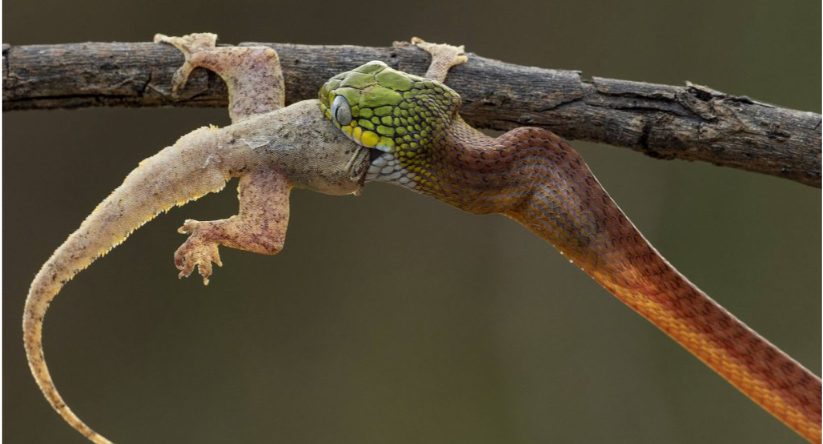The Spider’s Web tree, also known as the Strangler Fig, is a type of fig tree that grows in many parts of the world, including Nanning, Guangxi, China. This unique tree is called the Spider’s Web tree because of its striking appearance, which looks like a spider’s web draped over the trunk and branches of the tree.

The Strangler Fig is an epiphytic plant, which means it grows on other plants or structures but does not rely on them for nutrients. The tree begins its life as a seed that is dropped by birds or other animals onto the branches of another tree. The seed germinates and sends roots down towards the ground, eventually reaching the soil.

Once the Strangler Fig’s roots reach the ground, they continue to grow and spread, eventually wrapping around the host tree’s trunk and branches. As the roots grow thicker and stronger, they constrict the host tree, eventually killing it. The Strangler Fig then takes over the space formerly occupied by the host tree, growing to become a large, mature tree with a wide trunk and dense foliage.

The Strangler Fig is an important plant in many ecosystems, providing shelter and food for a variety of animals, including birds, monkeys, and bats. Its dense foliage also provides shade and helps to regulate the temperature and humidity of the forest floor.

In Nanning, Guangxi, China, the Spider’s Web tree is a popular attraction for tourists and nature lovers, who come to marvel at its unique and striking appearance.




Viewed using Just Read








